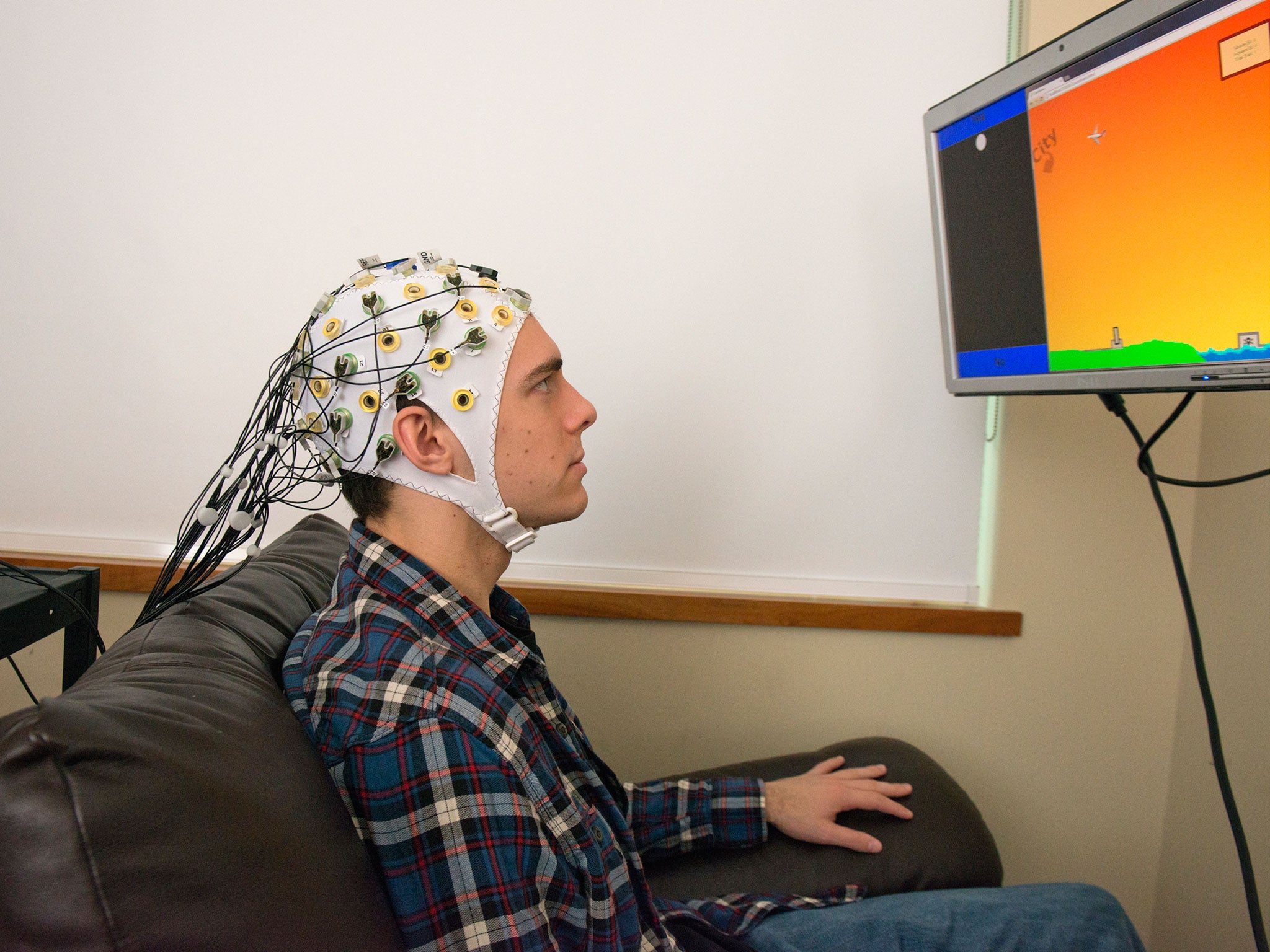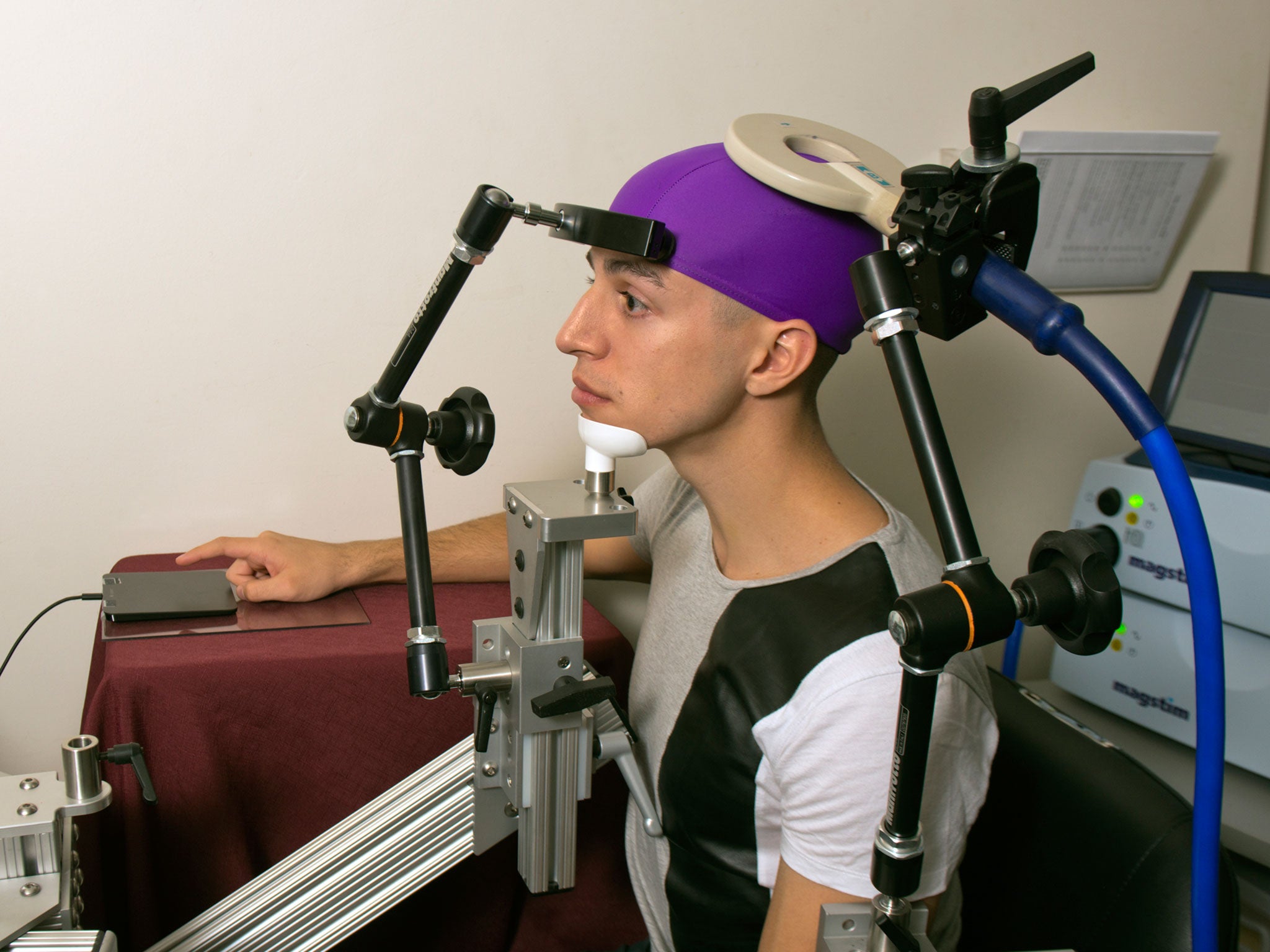Brain-to-brain communication: Could language become unnecessary?
New study demonstrates the possibility of bypassing speech

Your support helps us to tell the story
From reproductive rights to climate change to Big Tech, The Independent is on the ground when the story is developing. Whether it's investigating the financials of Elon Musk's pro-Trump PAC or producing our latest documentary, 'The A Word', which shines a light on the American women fighting for reproductive rights, we know how important it is to parse out the facts from the messaging.
At such a critical moment in US history, we need reporters on the ground. Your donation allows us to keep sending journalists to speak to both sides of the story.
The Independent is trusted by Americans across the entire political spectrum. And unlike many other quality news outlets, we choose not to lock Americans out of our reporting and analysis with paywalls. We believe quality journalism should be available to everyone, paid for by those who can afford it.
Your support makes all the difference.Imagine what would happen if the genius but completely incomprehensible physics teacher you had in school could ditch the pacing and vague muttering, and instead transfer her knowledge by popping a swim cap on your head and hooking you directly up to her brain.
It may sound far-fetched, but this kind of application is exactly what the scientists behind the latest study into brain-to-brain communication have in mind for the future, Dr Andrea Stocco told The Independent.
The research, conducted by Dr Stocco and his colleagues at the University of Washington and co-funded by the US Army Research Office, consisted of connecting the brains of three pairs of test subjects via the internet.
One member of each pair was watching a screen showing a computer game, in which their task was to protect a city under attack from pirates by launching rockets aimed at the assailants’ ship. The touchpad that controlled the rockets, however, was located in a dark room half a mile away, directly below their teammate’s hand.
In order to transfer the intention to move from one brain to another, the sender was hooked up to an electroencephalography machine, a device which picks up brain activity. These electrical pulses were then transmitted via the web to the receiver, who was fitted with magnetic head gear designed to stimulate the part of the brain responsible for controlling hand movements.
Via this set-up, signals from one participant’s brain could produce a twitch in their partner’s hand, which in turn would activate the virtual cannon (and destroy the pirates).

Despite the fact that the receiver was not able to see the computer game, the hit rate achieved by the three pairs ranged between 25 and 83 per cent.
Dr Stocco anticipates that if advances in neuroscience and technology continue to be made at the current pace, brain-to-brain communication could be put to practical use within the next 20 years.
Patients going through a revalidation process after suffering brain damage could be amongst the first to benefit from the technique. "Patients need to painfully and slowly re-learn simple motor actions, such as walking, grasping, or swallowing. We suspect that the re-learning phase could be greatly sped-up if we could provide the damaged brain with a "motor template" copied from a healthy person", Dr Stocco explains.
Professionals with expert motor skills, such as pilots and surgeons, could use brain-to-brain communication to control others' movements remotely; thus stepping in from afar when their expertise is called for.
The next step for Dr Stocco and his colleagues is to find ways to transfer complex information; including direct conveyance of thoughts and concepts. Eventually, they believe their work could lead to the dawn of “brain tutoring”, where the limitations of language are bypassed in favour of direct transmission of knowledge from one person’s brain to another.
"Imagine that we could extract the teacher's richer representation of a difficult concept and deliver it to his/her students in terms of neural activity; wouldn't that be a great way to overcome learning difficulties?," Dr Stocco muses.
Join our commenting forum
Join thought-provoking conversations, follow other Independent readers and see their replies
0Comments